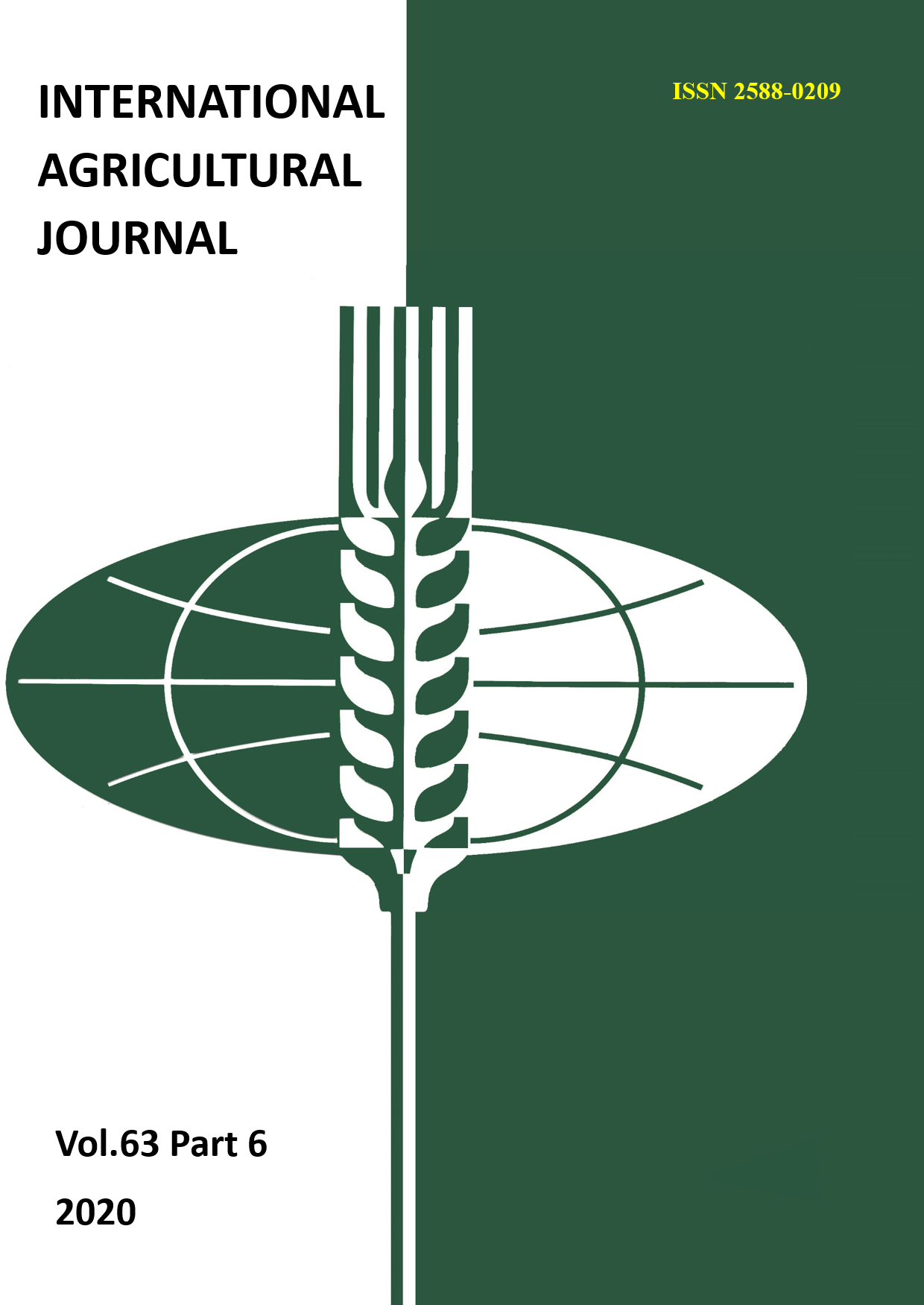MODELS OF CREATION AND FUNCTIONING OF AGRICULTURAL CONSUMER COOPERATIVE
Main Article Content
Abstract
The article discusses various options for the creation and functioning of agricultural consumer cooperatives. The aim of the study is to assess the advantages and disadvantages, performance indicators of cooperatives created within the framework of various models: the "traditional model", the "reference farmer" model, the "external integrator"model. The studied cooperatives were grouped taking into account their typical model of creation, and performance indicators were calculated for each cooperative. Key determinants of differences in models of creation of cooperatives, are: the initiator of the cooperative; the source and the formation of material-technical base of the cooperative; the entity initiating and controlling the main business relations of the cooperative. the departure from the classical principles of cooperation can be considered as a process of hybridization of cooperatives. the main factor of hybridization is the need to attract investment to form the material and technical base of the cooperative. capital-intensive areas of agricultural consumer cooperation are more susceptible to hybridization. It is revealed that in the analyzed set of cooperatives, the worst performance indicators are characterized by cooperatives whose activities are initiated and based on one large farm. cooperatives created under the " traditional model "and the" external integrator " model are, on average, more efficient. The main factors that increase the likelihood of effective operation of the cooperative are: sufficient material and technical base (not necessarily on the balance sheet of the cooperative, but available for its activities); a large number of members; the ability to use economies of scale to provide economic benefits to the participants of the cooperative; access to stable sales channels; interest of members in using the services of the cooperative, due to economic incentives.
Article Details
References
2. Ivanov V.V., Nagovitsina L.P., Drozdova M.I. Nekotorye problemy kooperativnoi sobstvennosti i avtorskoe videnie ikh resheniya // Fundamental'nye i prikladnye issledovaniya kooperativnogo sektora ehkonomiki. 2019. № 3. S. 126-134.
3. Romanova T.E. Teoreticheskie aspekty razvitiya kooperatsionnykh protsessov // Fundamental'nye i prikladnye issledovaniya kooperativnogo sektora ehkonomiki. 2018. 5. S. 85-89.
4. Sobolev A.V., Brilon A.V., Ermilov M.M. Kooperatsiya v fokuse issledovatelei: kooperativnaya model', povedenie i strategi // Fundamental'nye i prikladnye issledovaniya kooperativnogo sektora ehkonomiki. 2019. № 3. S. 31-42.
5. Sorokina I.EH. Institutsional'nye preobrazovaniya kooperativov: opyt zarubezhnykh stran // Vestnik Belgorodskogo universiteta kooperatsii, ehkonomiki i prava. 2011. № 1. S. 159-163.
6. Carbone A. Food supply chains: coordination governance and other shaping forces. Agric Econ 5, 3 (2017). https://doi.org/10.1186/s40100-017-0071-3.
7. Bijman J., Iliopoulos C., Poppe K.J. et al. Support for Farmers’ Cooperatives. (2012). Retrieved from https://op.europa.eu/en/publication-detail/-/publication/a2929ebd-e7d0-4ccf-a744-3bf5a4caeffd.
8. Palatkin I.V., Kudryavtsev A.A., Repkin A.YU. Aktual'nost' organizatsionno-pravovoi formy sel'skokhozyaistvennogo potrebitel'skogo kooperativa // Fundamental'nye i prikladnye issledovaniya kooperativnogo sektora ehkonomiki. 2020. № 1. S. 76-83.
9. Morozov A.V., Yavkina G.I., Boiko O.V. Sel'skokhozyaistvennye potrebitel'skie kooperativy i «dekorativY» // Fundamental'nye i prikladnye issledovaniya kooperativnogo sektora ehkonomiki. 2020. № 2. S. 109-121.
10. Forney J., Häberli I. Co-operative values beyond hybridity: The case of farmers’ organisations in the Swiss dairy sector. Journal of Rural Studies, vol. 53, pp. 236-246. (2017). https://doi.org/10.1016/j.jrurstud.2017.04.003.
11. Saraikin V.A., Yanbykh R.G. Napravleniya sovershenstvovaniya organizatsii i ehffektivnogo razvitiya kooperatsii // APK: ehkonomika, upravlenie. 2017. № 6. S. 10-47.
12. Sobolev A.V., Pakhomov V.M., Rykalin A.S. Sel'skokhozyaistvennye kooperativy: institutsional'nyi i regional'nyi podtekst // Fundamental'nye i prikladnye issledovaniya kooperativnogo sektora ehkonomiki. 2020. № 1. S. 90-100.
13. Grashuis J. Joint ownership by farmers and investors in the agri-food industry: an exploratory study of the limited cooperative association. Agricultural and Food Economics. (2018). Retrieved from https://agrifoodecon.springeropen.com/articles/10.1186/s40100-018-0118-0.
14. Yin H., Gao Y., Liu W. et al. Case study of “Meilong model” ecological animal husbandry shareholding cooperatives in Qinghai. Int. j. anthropol. ethnol. 3, 9 (2019). https://doi.org/10.1186/s41257-019-0024-8.
15. Standarty sozdaniya i deyatel'nosti sel'skokhozyaistvennykh potrebitel'skikh kooperativov: inform. izdanie pererab. i dop. – M.: FGBNU «RosinformagroteKH», 2019. – 84 s.
16. Kotlyarov I.D. Kooperativy i novaya institutsional'naya ehkonomicheskaya teoriya // Zhurnal institutsional'nykh issledovanii. 2019. № 3. S. 84-103.
17. Fermerstvu v Rossii byt': monografiya / Bashmachnikov V.F. [i dr.]; pod nauch. red. V.F. Bashmachnikova. – Moskva: «PerO», 2019. – 600 s.

